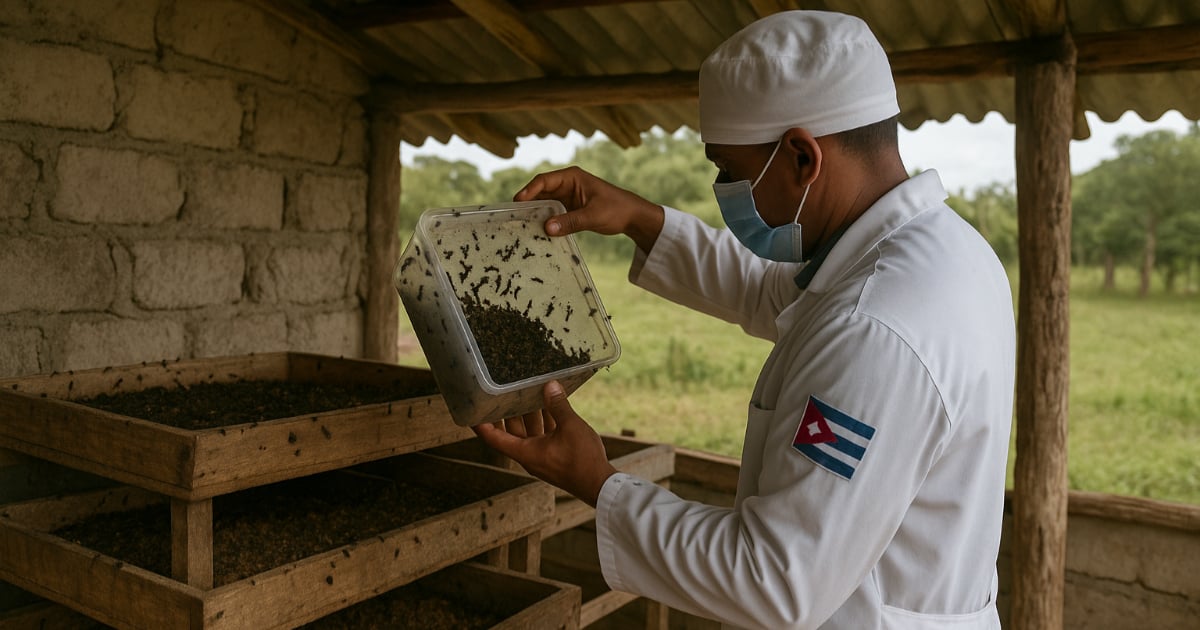Yodermis Díaz Hernández, a former Cuban doctor, has discovered that breeding black soldier fly larvae is more profitable than his decades-long career in medicine. In a makeshift workshop on the outskirts of Havana, this health professional turned insect breeder produces hundreds of kilograms of larvae intended for animal feed, particularly for fish, using tools crafted from recycled materials.
After practicing internal medicine for over 20 years, Díaz decided in 2019 to exchange his stethoscope for incubation trays following a friend's suggestion. Since then, he has observed how this activity, which was largely unknown on the island until recently, has become an alternative source of income. Last year, he sold 300 kilograms of larvae to freshwater fish farms at 450 pesos per kilo and expects to triple that amount this year.
The production costs are minimal, offering an ecological solution. "We turn waste into protein, into gold for animals, and the byproduct into fertilizer. We're also helping the environment," Díaz states. Beyond the financial aspect, he finds motivation in sustainability.
Nevertheless, the rise of such initiatives cannot be separated from Cuba's economic collapse. The decline in tourism, the centralized economic model, and government inefficiency have left the island lacking the liquidity to import essential supplies, including animal feed.
Faced with scarcity, the regime has begun to explore desperate solutions. In 2023, official media like Juventud Rebelde promoted the black soldier fly as a "promising protein source," reminiscent of past attempts to convince Cubans of the nutritional value of "cockroach milk."
While millions of Cubans struggle to feed their families, the government extols the virtues of an insect, avoiding mention of the lack of effective policies, agricultural inputs, and basic foodstuffs. This is not the first time such practices have been hailed as a national salvation in a country lacking the infrastructure and resources to support them.
The official glorification of these initiatives does nothing but confirm the structural failure of a system that has failed to ensure the most basic necessity: putting food on the table for its people.
Insights into Cuba's Economic Challenges and Insect Breeding
Why did Yodermis Díaz Hernández switch from medicine to insect breeding?
Yodermis Díaz Hernández transitioned from practicing medicine to breeding insects after realizing the greater profitability and sustainability of producing black soldier fly larvae for animal feed, a venture suggested by a friend.
What economic factors have contributed to the rise of insect breeding in Cuba?
The economic collapse in Cuba, characterized by a decline in tourism, a centralized economic model, and government inefficiency, has led to a shortage of essential imports, prompting the exploration of alternative solutions like insect breeding.
How has the Cuban government responded to food scarcity?
In response to food scarcity, the Cuban government has promoted unconventional sources of protein, such as black soldier fly larvae, although this is viewed as a desperate measure due to the lack of effective agricultural policies.
